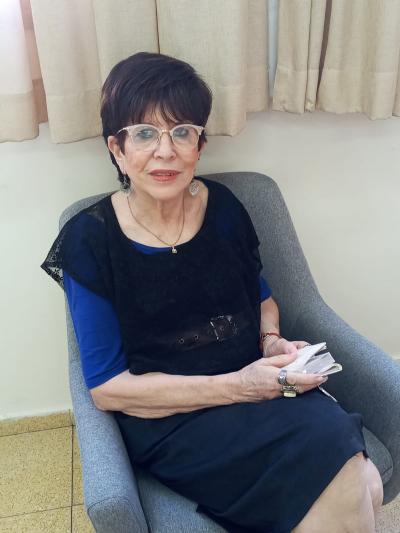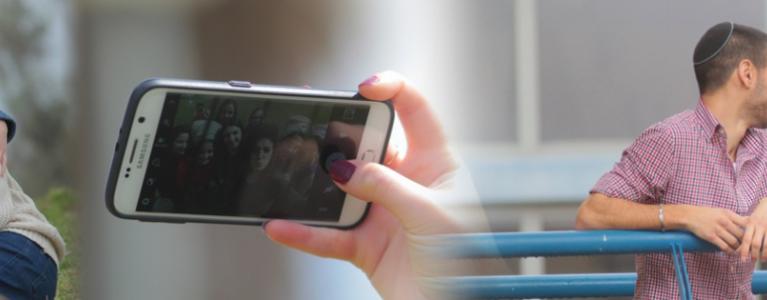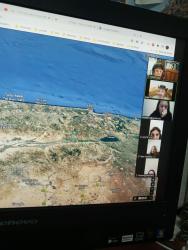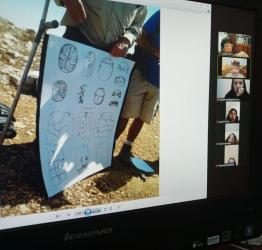
Due to COVID-19, the students didn't come for a summer semester from Orot's Teacher Training Program for the Diaspora at the Beit Hana Educational College in Dnipro, Ukraine.
The program was composed of three semesters. The first two semesters took place in the Ukraine and included courses in: Judaism, Hebrew language, Tanach, Mishna, Jewish history, culture and heritage. In addition, the students participated in classes for the development of their pedagogic and teaching skills.
One semester took place over the summer at Orot Israel College's Elkana campus where training was provided for knowledgeable candidates with pedagogic capability, and was conducted in a Jewish spirit based on love for the Torah, nation of Israel and land of Israel.
It has been difficult for me not to hear the girls speaking Hebrew mixed with Russian and not seeing them laugh on trips all over Israel, even as they complained about the difficult long walks as they thoroughly enjoyed every experience.
So, as the expression goes, “If the mountain doesn’t come to Mohammed, Mohammed will go to the mountain.”
We went to them.
The summer semester was divided in two parts.The first part covered the subject of “solidarity” in consequence of the Corona pandemic. The second part covered “get up and walk around the country” with virtual trips in different sites around Israel. All the learning was conducted over Zoom, five hours a day.We ran active workshop studies using the innovative learning method.
We would meet by way of the Jewish bookcase, where we came across solidarity in the Bible, Mishna, Talmud and other Jewish sources.
We encountered solidarity through stories about the Holocaust, Israel’s wars, and in the saga of Roi Klein who fought in Lebanon. Each lesson was accompanied by an Israeli song that suited the subject, which the girls sang after they learned and understood the message of the lyrics.
We met by way of remote learning applying Jewish methodology and became acquainted with interesting digital tools. The course didn’t skip over the media. We watched movies about solidarity and learned how to apply the media into classroom studies, in the present and in the future.
The Zoom screen drove a lively and fascinating shared workshop.
In the second part of the seminar we toured around the country with the Acco Galilee Field Trip College, all by virtual means as the camera didn’t skip any experience or detail. Every day we went to a different place.
We visited the Old City of Jerusalem, traversed the transport aqueduct and got wet, walked around the City of David and were exposed to fascinating stories. We visited the Hurva Synagogue. We climbed up to a porch overlooking the ancient city. We prayed at the Western Wall and placed a note between its stones.
We hopped over to the new city and entered the Israeli Knesset. We beheld the menorah positioned in the entrance.
We peeked into the Supreme Court building. From there we went up into the Moshe Montefiori Merkava tank and visited the Meshkanot Shaananim neighborhood to the tune of a song about Moses Montefiore.
We went down to the plains and explored Tel Aviv, the old and the new. We walked along the Jaffa beachfront and listened to Ben Gurion’s declaration of statehood on Rothschild Street in Tel Aviv.
We went south to Hebron, the city of the patriarchs, visited the Me’arat Hamachpela, where we paid our respects the patriarchs and matriarchs, and jumped over to Bethlehem to visit the Matriarch Rachel. From there we continued south to Masada and climbed up the embankment to its peak. We relived the terrible battle that took place there. One day we went north to Tiberius, went down to Lake Kinneret and rowed kayaks, then drove up to Tzefat and heard all about the city in its various time periods. We climbed up to Ramat Hagolan where we heard the story of Eli Cohen. We were moved to hear about his great contribution to the liberation of the Golan Heights. These were all tours with a virtual live experience.
Every day was supplemented by workshops that finalized our trips. At the Jewish bookcase, we encountered the unique characters that we heard about on our trips… King David, author of the Psalms; Rav Aryeh Levine who roams the alleys of old Jerusalem; the Rambam (Maimonides) who is buried in Tiberius; and we didn’t leave out the media that enlivened the sites we visited with various teaching methods. We learned how to be teachers who can apply history, the Jewish bookcase, media and methodology to their lessons.
It was a virtual seminar that covered the length and breadth of the Holy Land. We fell in love with it.
I really hope that next summer, with G-d’s help, we will all be able to tour the land by foot and with our backpacks on. Amen!




